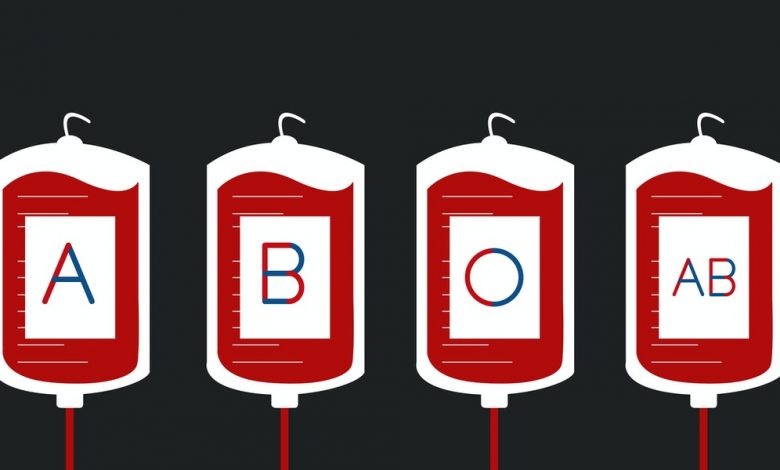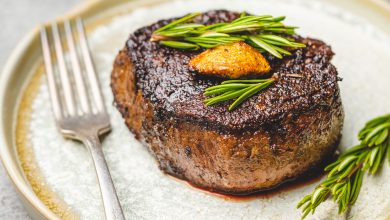
Blood Type Diets: Is Eating Right For Your Blood Type Legit?
In 1996, a book called “Eat Right 4 Your Type” was written and published by Dr. Peter D’Adamo. In his breakthrough book, a whole new type of diet approach was theorized – eating foods in accordance with your blood type. Across the nation, dieters jumped at the chance to try out a new diet that was tailored explicitly to their individual needs; however, alternatively, much of the scientific world remained skeptical.
Today, eating according to blood type is still a popular diet method. But we ask, can a blood type diet actually work? Below, we’ll explore what the blood type diet is, what the scientific community says, potential benefits, and how you can implement the diet into your lifestyle.
What Is the Blood Type Diet?
When Dr. D’Adamo developed the blood type diet, it was based on his theory that those with different blood types had different nutritional and exercise needs in order to maintain healthy weights. The corresponding book released touts meal plans in accordance with blood type and claims that the following of these meal plans can help you increase aspects of your health and lose weight healthfully.
The layout of blood type meal plans in D’Adamo’s book is as follows:
- The Hunter (Blood Type O) – D’Adamo suggests that people with this blood type do best with eating plenty of animal proteins and exercising strenuously. It’s recommended that dairy, grains, gluten, lentils, corn, and kidney beans are all avoided due to causing weight gain for those with type O blood.
- The Cultivator (Blood Type A) – Organic and vegetarian diets are recommended for those with type A blood due to D’Adamo’s perception of increased cancer, diabetes, and heart disease risks within this group.
- The Nomad (Blood Type B) – D’Adamo believes the blood type B group to require less restriction nutritionally. According to the book, a balanced diet and moderate exercise are all this group needs to stay healthy.
- The Enigma (Blood Type AB) – Due to a believed increased potential for anemia, cancer, and heart disease, the AB blood type group should follow a combination of diet recommendations for the A and B blood type groups. It’s also recommended that those with AB blood type avoid eating too much meat.
Potential Benefits of the Blood Type Diet
It’s important to note that there has not been any scientific evidence to back up benefit claims of following the blood type diet. According to the diet and some proponents of eating by blood type, potential benefits can include:
- Weight loss
- Immune system boosting
- Lowering of heart disease risks
- Lowering of certain cancer risks
- Energy increase
- Overall health improvement

What Science Says
While the diet remains popular, unfortunately, it’s not science-based at this time. Scientists and nutritionists specifically don’t like the fact that specific blood type groups are limited on the consumption of certain healthy foods. Healthline conducted an interview in 2018 with the wellness nutrition manager at Cleveland Clinic Wellness Institute Kristin Kirkpatrick, who says of the diet, “My advice to clients is this: If a certain blood type diet also happens to be a whole foods diet that has plenty of plants, lean proteins, healthy fats, and void of white grains and sugar, then by all means follow it. But if a particular diet for your blood type suggests that you cut out food groups, or buy special foods, then like any diet, it’s probably not the best approach from a sustainability factor.”
With nutritional concerns noted, is there any real basis for modifying health habits according to your blood type? Utilizing blood testing in medical diagnostics is already widely used and proven. However, no conclusive study demonstrates blood type and its coordinated effects on healthy diets. That being said, there are promising studies that have shown potential correlations between blood type and heart attack and diabetes development risks. Continuance of this testing may potentially lead to a better understanding of blood type’s influence on diet needs in the future.

Alternatives to the Blood Type Diet
While there are definitely positive, healthy eating takeaways from the blood type diet, it may not be the best fit for your overall nutritional needs. If you’re looking for a diet that instills prolonged and healthy eating to help you lose weight and gain better habits, we’ve listed some alternatives to consider below:
- Mediterranean Diet – Those who are concerned with weight gain and heart disease risks should consider the Mediterranean diet. This diet focuses on consuming a well-balanced diet of whole grains, fish, seafood, nuts, seeds, vegetables, olive oil, and fruits.
- Low-Fat Diet – Low-fat diets can help those seeking lower cholesterol, a healthier heart, and weight loss. Primarily, those who follow a low-fat diet will attempt to consume no more than 30 percent of their overall calorie intake for the day. Overall, low-fat diets can prove helpful, but it’s important to avoid certain health risks by consuming too little fat.
- DASH Diet – DASH stands for “dietary approaches to stop hypertension.” Through this diet, those with high blood pressure can seek to lower it through the reduction of salt, sugar, red meat, and fat. Consuming a well-balanced diet of lean proteins, whole grains, fruits, and vegetables is recommended on the DASH diet. It is important to note that, while too much salt intake is unhealthy, your body does still require salt for certain process; avoid accidentally consuming too little salt while on this diet.
- Intermittent Fasting – Intermittent fasting has gained popularity in recent years. Those who use intermittent fasting for health or to lose weight will regularly fast and restrict calorie intakes over a designated period of time. Some choose to fast during certain portions of each day, while others may determine that fasting for 48 hours once per week works best for them.
Diets can impact certain health conditions or exacerbate other health problems. Whatever diet you choose to follow, we always recommend consulting with a physician or nutritionist first to determine what option will work best for your health and nutritional needs.



